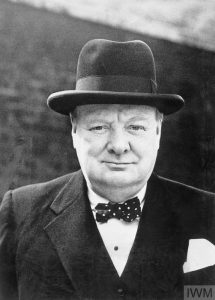This is the first of three blog posts examining the past, present and future of the UK’s decision to leave the European Union.
The Role and Nature of the European Union
The great divide in politics (and perhaps human affairs in general) is between co-operation and competition – whether between individuals, businesses or countries. The role of co-operation is to pool decision-making for a greater shared benefit, including the benefit of avoiding foreseeable future conflicts. The role of competition is to pit resources, techniques and organisational structures against each other to find the ones that work best. The degree to which one or other is favoured – even to the extent of fetishisation – tends to define political outlooks.
There are two main arguments for the pre-eminence of co-operation, all else equal. Firstly, it is potentially less wasteful – all resources, techniques and structures are focussed on common goals, whereas under competition the losing approaches may have consumed much with little useable output. Secondly any worthwhile competition requires a co-operative base – to determine the winning criteria, and to set the framework of rules that makes the result meaningful. (Note that this latter even applies to the ultimate competitive scenario – that of war; conventions generally exist to avoid the destruction of the civilisations and the planet that are being fought over.)
If the role of competition is its ability to explore and compare different approaches where the best option is not yet known, this suggests that co-operation is more likely to be appropriate when the best resources, techniques and organised structure are more or less understood.
The foundations of the European Union were based on this sort of analysis, prominently made by Winston Churchill himself. Political and social competition in the form of a devastating war had determined (to the extent that this was not known previously) that economic and political co-operation between and within mixed-economy democratic nations was highly effective against a monolithic and authoritarian foe.[1]
The thinking was that reduced national competition over essential resources (initially coal and steel specifically) would lead to greater political co-operation over shared goods. In turn this political co-operation could be used to set the rules for a more constructive competitive environment, where countries and businesses sought advantage through innovation and productivity rather than manipulation such as trade barriers and currency devaluations, the exploitation of labour at home and abroad, consumer ignorance, and even ultimately the threat of military force.
The exact balance between co-operation and competition will always be up for debate, but the much-maligned institutions of the modern European Union make the ideal setting of this balance a realistic and continuous possibility – which without them it would not be. This is shared sovereignty in this regard, where the alternative is not independent sovereignty, but zero sovereignty.
[1] Included in the victorious alliance against Nazi Germany was of course the monolithic and authoritarian Soviet Union – but the enormous losses and destruction they suffered do not argue well for the ‘efficiency’ with which the Soviets fought the war.
